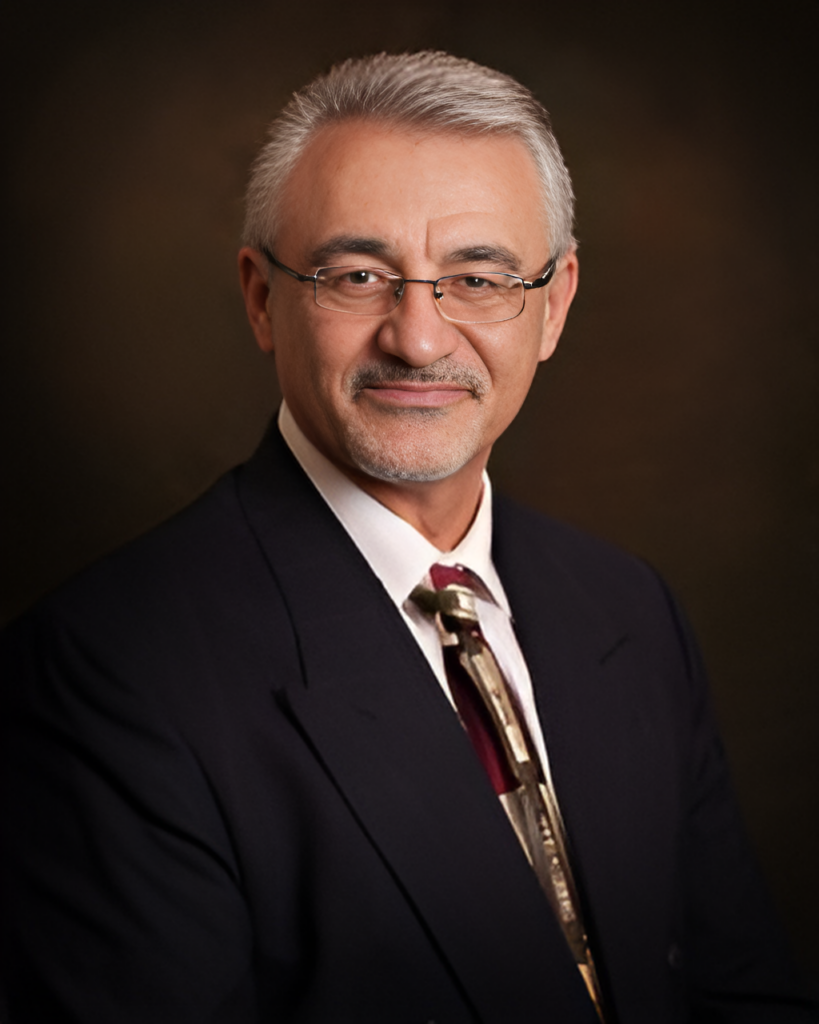
Navigating the complexities of mental health can be challenging, but finding the right support is crucial for well-being. For residents of Aurora and Oswego, IL, there are numerous options available for those seeking help from mental health professionals. Whether you’re dealing with a specific mental health condition or looking for support in overcoming addiction, licensed clinical professional counselors and licensed professional counselors are here to assist you.
Family counseling, couples therapy, and talk therapy are just a few of the therapy services offered by these skilled professionals. Our local therapists, including licensed marriage and family therapists and clinical social workers, are dedicated to creating a safe space for you to explore your thoughts and feelings.
In addition to in-person sessions, many therapists now offer online therapy, providing flexibility and accessibility to those who may prefer remote sessions. Online counseling can be an excellent option for those with busy schedules or those who feel more comfortable in their own homes.
Treatment centres and community centres in the area also provide therapy services, utilizing a variety of therapeutic techniques tailored to individual needs. From addiction counseling to managing mental illnesses, these centres are staffed with knowledgeable and compassionate professionals, including nurse practitioners and medical providers.
If you’re unsure where to start, your primary care physician can often refer you to a qualified mental health professional. It’s important to find a therapist who suits your specific needs, whether it’s for ongoing support or short-term therapy. Potential therapists should have the appropriate qualifications, such as a master’s degree or bachelor’s degree in their field.
For those looking to find therapists, many popular cities have directories and resources to help connect you with local therapists. These platforms can guide you in finding a licensed therapist who meets your criteria. Therapy options are abundant, and it’s essential to find one that feels right for you.
Remember, mental health is a journey, and with the support of dedicated mental health professionals, you can work towards a healthier, happier life.
Why Seek a Local Therapist?
Living in Aurora or Oswego, IL, gives you access to a range of skilled therapists right in your community. But why should you seek a local therapist?
Convenience and Accessibility: Having a therapist nearby means less travel time and easier scheduling, making it more likely you’ll attend regular sessions.
Building a Therapeutic Relationship: Regular, face-to-face interaction helps build a strong therapeutic relationship, which is key to effective therapy.
Immediate Support in Crises: In times of crisis, having a local therapist can provide immediate support and intervention.
Types of Therapy Available

Therapy is not one-size-fits-all. Different types of therapy are suited to different needs. Here are some common types:
Individual Therapy
- Cognitive Behavioral Therapy (CBT): Focuses on identifying and changing negative thought patterns.
- Psychodynamic Therapy: Explores unconscious processes and how they affect current behaviour.
When it comes to addressing mental health, there are various types of therapy available, each designed to cater to specific needs and conditions. Here are some of the primary therapy options:
Individual Therapy: Mental health professionals, including licensed clinical professional counselors and licensed professional counselors, offer a wide range of therapy services to help individuals manage their mental health conditions and improve their overall well-being. Talk therapy is a common approach in individual sessions, where clients work one-on-one with their therapist to explore and address personal issues.
Addiction Counseling: For those dealing with addiction, addiction counseling is a specialized therapy that focuses on overcoming substance abuse and its related challenges. This form of therapy is often provided by licensed therapists who have expertise in addiction treatment.
Family Therapy and Couples Therapy: Family therapy and couples therapy are designed to help families and couples navigate relationship issues and improve communication. These sessions are often facilitated by family therapists and licensed marriage and family therapists who are skilled in addressing the dynamics within these relationships.
Online Therapy: For individuals who prefer the convenience and flexibility of remote sessions, online therapy and online counseling are excellent options. Many therapists online offer these services, ensuring that support is accessible regardless of location. This can be particularly beneficial for those living in popular cities or remote areas where in-person therapy may not be as readily available.
Therapy in Community Centers and Treatment Centers: Treatment centres and community centres provide therapy options, often staffed by local therapists, nurse practitioners, and other medical providers. These centres offer a variety of therapeutic techniques to address mental illness and other mental health conditions, making therapy accessible to a broader community.
Finding The Right Therapist
Finding the right therapist involves several steps:
- Consult your Primary Care Physician for referrals to trusted mental health professionals.
- Look for Local Therapists in popular cities and community centres.
- Ensure potential therapists create a Safe Space and use appropriate Therapeutic Techniques.
With numerous therapy options available, you can find therapists who create a supportive environment to help you navigate mental illness and improve your mental health.
Here Are Our Few Top Therapists In Aurora And Oswego, IL

Profile: Gary Coleman, Psy.D.
Specialization: Clinical Psychologist
Contact Info: (630) 898-5322

Profile: John Cosma, Psy.D.
Specialization: Psychotherapist
Contact Info: (630) 898-5322

Profile: Kysa Epstein, LCPC
Specialization: Licensed Clinical Professional Counselor
Contact Info: (630) 898-5322
What to Expect in Your First Session

Your first therapy session can be nerve-wracking, but knowing what to expect can help.
Initial Consultation Process: You’ll discuss your reasons for seeking therapy and your therapist will explain their approach.
Setting Goals and Expectations: You’ll work together to set realistic goals for your therapy.
Confidentiality and Trust-Building: Your therapist will explain confidentiality and work on building a trusting relationship.
The Role of Therapy in Daily Life
Therapy plays a crucial role in daily life, providing essential support for mental health and well-being. Mental health professionals, including licensed clinical professional counselors, licensed professional counselors, and clinical social workers, offer a variety of therapy services to address mental health conditions and mental illness. Whether through family therapy, couples therapy, or individual talk therapy, licensed therapists use therapeutic techniques to help clients navigate their challenges.
Finding the right therapist, whether through a primary care physician’s referral or by searching for local therapists in popular cities and community centres, is vital. Local therapists, including family therapists and licensed marriage and family therapists, create a safe space for clients to explore their feelings and improve their relationships. For those dealing with addiction, addiction counseling is available at treatment centres and through online therapy options, such as therapists online and online counseling.
Potential therapists should have the appropriate qualifications, such as a master’s degree or bachelor’s degree in their field, ensuring they can provide effective and professional care. In addition to in-person sessions, many mental health professionals offer online therapy, making mental health support accessible to those with busy schedules or limited access to local providers. By offering a range of therapy options, from traditional in-office visits to remote online sessions, mental health professionals help individuals manage their mental health conditions and lead healthier, more fulfilling lives.
Therapy for Different Age Groups

Different age groups have unique needs in therapy:
Children and Adolescents: Therapists use techniques like play therapy to help younger clients express themselves.
Adults: Focuses on managing stress, career issues, and relationships.
Seniors: Addresses issues like grief, loneliness, and health-related concerns.
Specialized Therapies

Some issues require specialized therapy approaches:
Trauma-focused Therapy: Helps those who have experienced severe trauma.
Addiction Therapy: Supports recovery from substance abuse.
Grief Counseling: Helps individuals cope with loss.
Benefits Of Ongoing Therapy

Ongoing therapy offers numerous benefits:
Long-term Mental Health Maintenance: Helps keep your mental health in check.
Continual Personal Development: Supports ongoing personal growth.
Sustaining Emotional Balance: Helps you maintain emotional stability.
How To Measure Progress In Therapy?
Measuring progress in therapy is essential to ensure the effectiveness of the treatment and to make any necessary adjustments. Mental health professionals, including licensed clinical professional counselors, licensed professional counselors, and clinical social workers, use various methods to evaluate progress in addressing mental health conditions and mental illness.
Setting and Reviewing Goals
One of the primary ways to measure progress is by setting specific, measurable goals at the beginning of therapy. Whether it’s for family therapy, couples therapy, or individual talk therapy, these goals provide a benchmark for both the therapist and client to track improvements. Licensed marriage and family therapists, family therapists, and addiction counseling specialists often use goal-setting to guide the therapeutic process.
Regular Assessments
Mental health professionals conduct regular assessments to evaluate the client’s progress. These can include formal assessments, such as standardized questionnaires, and informal check-ins during sessions. Professional counselors and therapists online can use these tools to gauge changes in the client’s mental health condition over time.
Client Feedback
Client feedback is crucial in measuring progress. Regular discussions about what is working and what isn’t can help mental health professionals adjust their therapeutic techniques. This feedback loop is vital for therapists to provide therapy that meets the client’s needs.
Observing Behavioral Changes
Observable changes in behaviour, thought patterns and emotional responses are key indicators of progress. Licensed therapists, including local therapists in community centers and those offering online therapy and online counseling, look for these changes as signs of improvement.
Collaboration with Other Providers
Collaboration with other healthcare providers, such as a primary care physician or nurse practitioner, can provide additional insights into a client’s progress. Medical providers can offer a holistic view of the client’s health, aiding in the assessment of mental health improvements.
Consistent Monitoring
Using consistent monitoring techniques, such as journaling or self-report scales, clients can track their progress. This self-monitoring is often encouraged by mental health professionals as a way for clients to stay engaged in their treatment process.
By employing these methods, mental health professionals help clients and families find therapists who can effectively support their journey toward better mental health. Whether through in-person sessions with local therapists or via online therapy platforms, the goal is to create a safe space where clients can thrive.
Common Myths About Therapy

There are many misconceptions about therapy:
Despite its proven benefits, therapy is often surrounded by misconceptions that can deter individuals from seeking help for their mental health. Here are some common myths debunked:
Therapy Is Only For Severe Mental Illnesses
Contrary to popular belief, therapy is not only for severe mental illnesses. Mental health professionals, including licensed clinical professional counselors and licensed professional counselors, provide therapy services for a wide range of mental health conditions and concerns. Whether it’s managing stress, improving relationships through family therapy or couples therapy, or addressing addiction through addiction counseling, therapy can benefit anyone seeking support for their mental well-being.
Therapy is a Sign of Weakness
Seeking therapy is a courageous step toward improving mental health, not a sign of weakness. Licensed therapists and family therapists are trained to provide therapy in a safe space where clients can explore their emotions and develop coping strategies. Therapy encourages personal growth and resilience, regardless of the nature or severity of the mental health condition.
Therapy is Endless and Neverending
Therapy duration varies depending on individual needs and goals. Some clients may benefit from short-term therapy to address specific issues, while others may choose long-term therapy for ongoing support and personal development. Therapists online and in-person provide therapy options that are flexible and adaptable to the client’s progress and changing circumstances.
Therapy Doesn’t Work
Therapy is effective in treating a wide range of mental health conditions. Therapists use evidence-based therapeutic techniques to help clients achieve their goals and improve their mental well-being. With the guidance of licensed therapists and clinical social workers, clients can find therapists who are skilled in providing therapy services tailored to their unique needs.
Only “Crazy” People Need Therapy
Therapy is for anyone who wants to improve their mental health and overall quality of life. Licensed therapists and licensed marriage and family therapists create a non-judgmental environment where clients can freely discuss their concerns and work towards positive changes. Therapy services are available in local therapists’ offices, treatment centres, and online therapy platforms, making mental health support accessible to everyone.
By addressing these myths, mental health professionals aim to encourage individuals to seek therapy as a valuable resource for mental health and well-being. Finding the right therapist, whether through a primary care physician’s referral or by searching for therapists in popular cities and community centres, is an important step towards better mental health.
Insurance and Payment Options
Understanding the financial aspects of therapy is important:
- Understanding Your Coverage: Know what your insurance covers.
- Out-of-pocket Costs and Sliding Scales: Many therapists offer sliding scale fees based on your income.
- Financial Assistance Programs: Look for programs that can help cover therapy costs.
People Also Ask
How do I know if I need therapy?
If you’re struggling to manage your emotions, relationships, or daily activities, therapy can help.
What should I look for in a good therapist?
Look for a therapist with relevant experience, qualifications, and a style that suits your needs.
Can therapy help with my anxiety?
Yes, therapy is highly effective in managing anxiety through various techniques.
How long does it usually take to see results?
It varies, but many people start to see improvements within a few sessions.
Is therapy confidential?
Yes, therapists are bound by confidentiality laws to protect your privacy.




